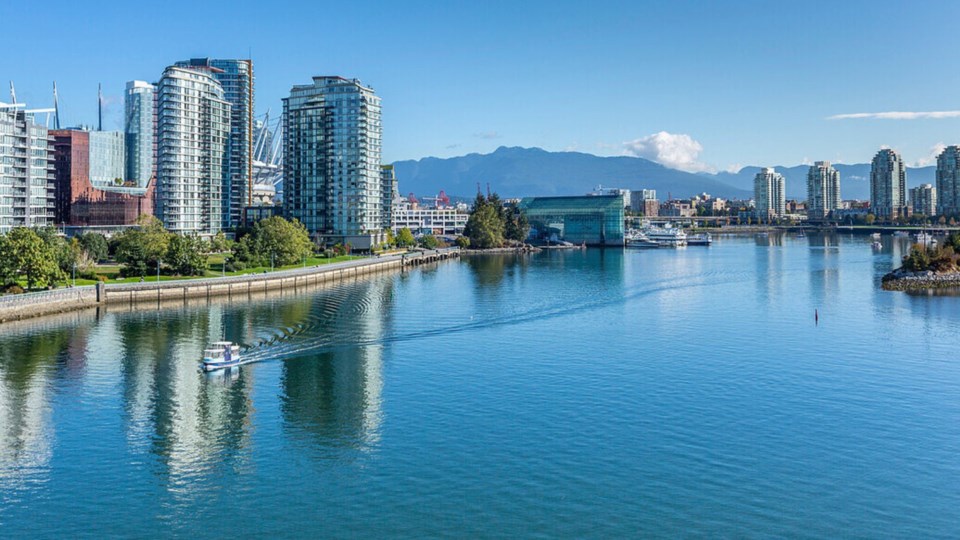The City of Vancouver is moving forward with a new housing agreement that could bring over 650 non-market homes to False Creek North.
The agreement with Concord Pacific creates an opportunity for the City to partner with BC Housing to develop new non-market homes on three sites in False Creek North and an opportunity to introduce public amenities such as a fire hall and childcare facility.
"We're excited to see progress being made towards securing much-needed housing in the heart of our city," says Mayor Ken Sim, in a Feb. 13 press release. "We're thrilled to be working with our partners, the Province and Concord Pacific, and look forward to considering the merits of the proposal."
Amendments to the False Creek North Official Development Plan (FCN ODP) and the applicable zoning are required to accommodate the plans and are expected to be presented to Council in July 2023.
The housing plan
The proposed policy changes would allow:
- A 28-storey non-market housing building with a height of 85.3 m (280 ft.), including a new fire hall and childcare facility at 990 Beatty St
- A 29-storey non-market housing building with a height of 88.1 m (289 ft.) at 1050 Expo Blvd
- A 7-storey non-market housing building with a height of 22.5 m (74 ft.) at 450 Pacific St
- Removal of the non-market housing obligation at 431 Beach Cres, 1502 Granville St, and 900 Pacific Blvd.
The False Creek North Official Development Plan was established in 1990 to guide the development of the Plaza of Nations which served as the Expo 86 site, now known as False Creek North. Currently, The Batch is making use of the empty site while the City negotiates the area's future.
Since 1990, six non-market housing projects have been built in False Creek North bringing more than 540 units into the community but there are six sites owned by Concord Pacific that remain undeveloped. The City holds options to purchase those undeveloped sites and the new agreement would see Concord Pacific waive the City's $11 million option price on three sites and provide the City with $110 million in cash to fund the new street network planned for Northeast False Creek, a total value of $121 million in financial contributions.
What is non-market housing?
Non-market housing is for low- and moderate-income singles and families, often subsidized through a variety of ways, including senior government support. This housing is managed through various operators, including the public, non-profit, co-op, and urban indigenous sectors, according to the City of Vancouver.
What's in it for Concord?
Matt Meehan, Senior Vice-President, Planning, Concord Pacific Developments Inc. suggests the City plans to put the funds "towards the removal of the seismically compromised viaducts" and thinks "it would also unlock even more affordable housing opportunities in the area."
In exchange, the City will release its options to purchase the three remaining sites, allowing Concord Pacific unencumbered ownership to develop market housing.
The Memorandum of Understanding for this plan was first signed by the City of Vancouver, BC Housing and Concord Pacific in 2018 and in 2022, Council approved an agreement between the City and Concord Pacific for a new delivery model for housing.
The B.C. government supports the plan
Ravi Kahlon, BC Minister of Housing, says of the project: "Together with the City of Vancouver, the Province is committed to tackling the housing crisis that has forced too many people to move away from the community they call home. This proposal for 650 new non-market affordable homes will deliver the supply of affordable housing that Vancouver needs."
He believes "we are making progress, with nearly 8,500 new affordable homes open or underway since 2017." But says, "there is much more to do to increase housing supply."





